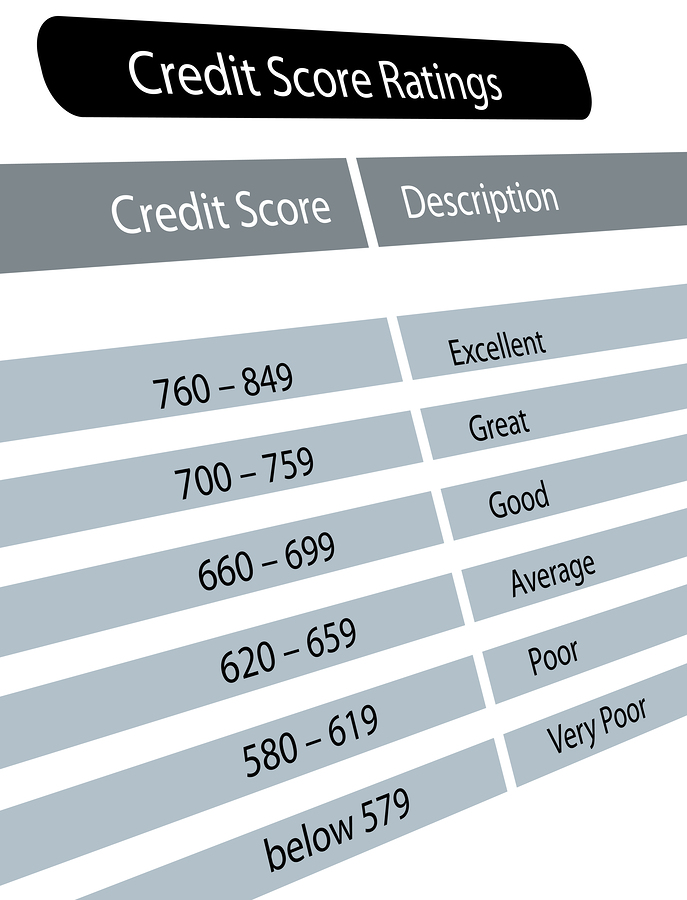Consistency is key when you’re working on improving your credit score. The following 5 tips won’t be effective if you’re not consistent with them; but when you make long-term changes and consistently follow your plan, your credit score will definitely improve.
1. Reduce your Credit Card Balances
Hefty credit card balances can take a big toll on your credit score. In order to improve your score, you’ll want to keep your debt-to-credit ratio at 30 percent or lower. The lower that percentage is, the more your credit score will improve.
To reduce your credit card balances, take a look at your cards and find out which one has the highest interest rate. Start by paying that card down first. After you’ve paid your balance off, start paying off the card with the next highest interest rate. This strategy is often called the “snowball” method of paying off credit card balances. It’s very satisfying because once you pay off the first card, you have a larger chunk of money to put toward your next credit card balance. Before long, you’ll be out of debt.
2. Avoid ‘Nuisance Balances’
It’s tempting to accumulate a lot of different credit cards. Stores offer tempting discounts if you apply for their store credit cards, but then you find yourself with small balances on many different cards. This can hurt your credit score.
To avoid ‘nuisance balances,’ gather up all of your credit cards on which you have small balances and pay them all off. Then, choose just one or two credit cards that you can use to pay for all of your expenses. As you choose these go-to cards, make sure they have low interest rates. Then, resist the urge to apply for new credit cards, even if the store offers you great deals.
3. Do Your Loan Shopping in a Short Amount of Time
Whenever you apply for credit, you’ll see a small dip in your credit score that lasts for a year. So if you’re going to be shopping for a mortgage, auto loan or student loans, make all of your inquiries within a 30-day time span.
When these inquiries come within a 30-day time span, the credit agencies view them as just one inquiry. If you spread your credit shopping out, however, you will experience multiple dings to your credit score, and this can really hurt.
4. Pay Your Bills On Time
This is probably one of the most basic ways to improve your credit score, but you might as well do it. It’s easy to do if you establish good bill-paying habits, and the credit agencies like to see that you’re reliable and dependable.
If you’ve had trouble paying your bills on time in the past, put bill-paying on your calendar so you don’t forget. If you don’t have a designated place in your home for unpaid bills that are waiting for bill-paying day, decide which box or drawer you’ll use. Put systems in place so you never misplace a bill and never pay one late.
5. Don’t Do Anything That Looks Risky
The two biggest reasons for dips in your credit score are missing payments and suddenly paying less or charging more than you usually do. These kinds of behavior indicate risk, and the credit reporting agencies will hint at the risky behavior by dropping your score.
This is where consistency really comes into play. Just keep paying off those credit card balances and paying your bills on time, and your credit score will eventually improve.
Other risky behavior that drops your credit score includes taking out cash advances or even using your credit cards at businesses that may indicate future financial problems, such as pawn shops or a divorce law firm.
Finally, obtain a copy of your credit report to know what you’re working with. You are entitled to one free copy of your credit report each year through the three credit reporting agencies, Equifax, Experian, and TransUnion. When you receive your credit reports, check them to make sure the information is accurate. If you find mistakes, take care of them quickly by contacting the credit reporting agency and the company related to the mistake.
Remember that consistency is key when it comes to improving your credit score. When you reduce credit card balances, avoid ‘nuisance balances,’ do your loan shopping in a short amount of time, pay your bills on time, and avoid risky behavior, your credit score will improve, leaving you with greater financial options.
For more information about credit card balances and your credit score, contact the banking professionals at Florida Capital Bank.

